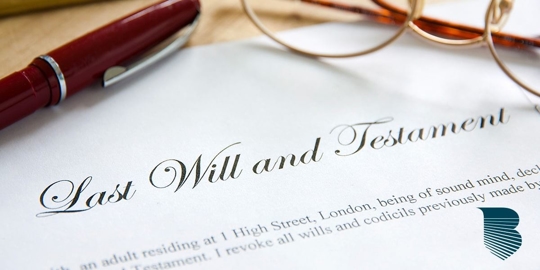As the world navigates the coronavirus pandemic, many are considering how to care for their loved ones should the worst come to pass. Although it’s not always nice to think about, estate planning is an essential part of securing your financial legacy and maintaining peace of mind. Estate planning is for everyone, regardless of income, and in these trying times it is even more important to ensure that your affairs are in order. Here is a brief overview of how you can plan your estate today to ensure that you are prepared for the effects of COVID-19.
Preserve Your Wealth
As COVID-19 affects the economy, it’s important to adjust your investments and diversify your holdings as necessary. Work with a financial planner to go over the best options for you, and then protect your assets with help from a lawyer. An estate planner can provide added security to ensure your wealth is cared for, even in tumultuous times.
Draft a Will
Like we mentioned above, estate planning is for everyone, no matter your financial situation. Everyone should have a will. A will asserts how your property should be distributed upon your death, based on your personal wishes. Without a will, your assets are distributed according to your state’s laws. Drafting a will is the first and most vital step to ensuring that you are in control of how your assets will be distributed.
Assign an Executor
The executor is the individual that will preside over your estate and carry out your wishes, so it’s important to choose someone that you trust. Your executor can be a family member, friend, or estate planning professional; he or she will be designated in your will. They will collect and manage your assets, notify banks and government agencies of your passing, pay any debts, maintain property until it can be sold, decide what kind of probate is necessary, and distribute your assets.
Consider a Trust
A trust is a financial agreement in which one individual or organization (the trustee) manages your assets for the benefit of another individual (the beneficiary). A trust is not always necessary, but there are certain instances in which it may be a good choice. Some examples include when will contest is likely, when you have children from a first marriage who should receive your wealth after the passing of your second spouse, to avoid federal estate tax, or to provide a steady income for someone who cannot responsibly manage finances. Not sure if a trust is right for you? Contact Burrows Law Group and we can determine your best course of action.
Do an Estate Plan Check-up
Throughout the course of our lives, things change, and our estate plans should change accordingly. When major life events occur, like getting married or having children, you need to speak with your estate planner and make adjustments right away. Even if you haven’t experienced any major changes, it’s important to regularly check your will to remind yourself of your plans and ensure no alterations need to be made.
Consult an Expert
Leaving a legacy for your loved ones requires careful planning, and it’s best to get assistance from an expert. An estate planner knows everything about wills, trusts, and the laws and requirements of your specific state. They make sure that every detail is accounted for, so you can relax knowing everything will run smoothly after your passing. Planning today ensures your wishes will be carried out, so even when the world feels a bit chaotic, you can feel at ease.
Want to get started on planning your estate? Contact Burrows Law Group or call 972-236-7798 to speak to an attorney today.

